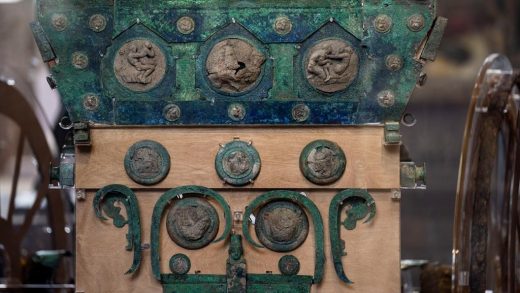
Supplied
Highlanders chief executive Roger Clark, left, and Matt Davey. Davey is facing bankruptcy over his failed ticketing business.
The man behind a collapsed ticketing company is now involved in a contracted legal argument over his bankruptcy.
Former Dunedin businessman Matt Davey was behind Fortress Information Systems, which traded as Ticket Rocket and was previously known as TicketDirect, before it was placed into receivership and liquidated in 2020.
Its associated companies – Dash Group and Dash Tickets New Zealand – were also placed in receivership.
Davey, who moved to Australia before the full extent of the collapse was revealed, sought a stay of enforcement of a legal judgment obtained by the Bank of New Zealand (BNZ) on July 16, 2021.
READ MORE:
* Ticket Rocket ticket holders unlikely to get refunds, owner faces bankruptcy
* Judge confirms Ticket Rocket owner must pay BNZ $3.85 million
* Bank seeks millions from runaway owner of failed ticket company
Hamsih McNeilly/Stuff
A ticket to the Highlanders match v the Rebels at Forsyth Barr Stadium, the last game using Ticket Rocket, which was owned by the former rugby franchise’s co-owner.
However, no appeal regarding that judgment had been filed, according to a High Court decision from Associate Judge Dale Lester, which was released on Wednesday.
If a stay in proceedings was not granted, Davey would have been bankrupted in the Federal Court of Australia.
“It is highly unsatisfactory the application for a stay is made at the eleventh hour,” the judge said.
The bankruptcy proceedings had been before the Federal Court since June 23, when an initial adjournment was granted. A further adjournment was granted just over a month later.
Ticket Rocket
A logo from the Ticket Rocket website.
Due to Davey being a resident in Sydney, BNZ obtained leave on September 13, 2021, to issue a bankruptcy notice to be issued by the High Court.
Davey had been aware of the need for a stay for an extended period, but Judge Lester disagreed that the failure to apply out of time was due to Davey’s previous solicitors, as his current solicitors were given instructions in late April.
Meanwhile, lawyers for BNZ agreed to an adjournment of the bankruptcy application in Australia for 10 working days.
“The delay in bringing an appeal coupled with the delay in applying for a stay stand squarely against the application,” the judge said.
But that was rejected.
“I am left with the impression that the timing of this application was intended to force the court’s hand to grant a stay.”
The company’s troubles first came to light after a swathe of events were cancelled or postponed amid the Covid-19 lockdown in April and May 2020, and requests for refunds surged.


